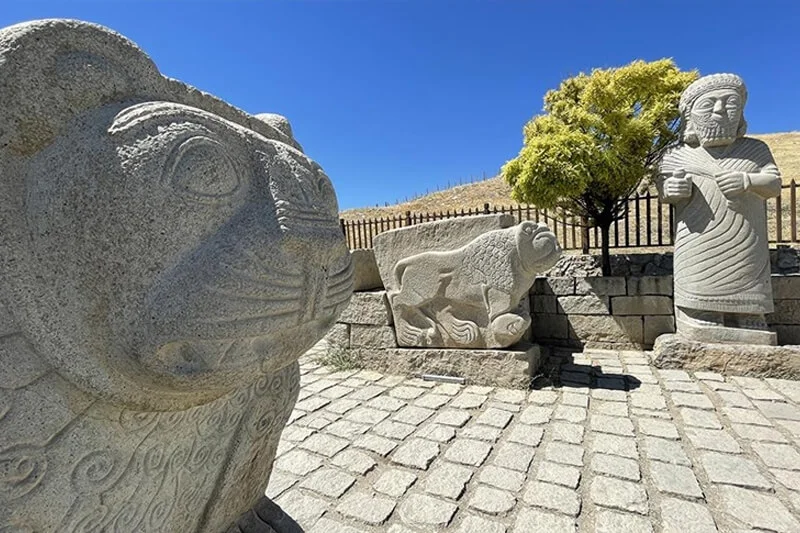Arslantepe, also known as Melid or Eski Malatya, is an ancient archaeological site located in eastern Turkey, near the modern city of Malatya. It was an important city during the Bronze Age and the Iron Age, with a history spanning several millennia.
Historical Significance: Arslantepe was a significant center of civilization and trade in the ancient Near East. Its history dates back to the 4th millennium BC, and the site was continuously inhabited until the Medieval period. Arslantepe played a crucial role in the cultural and economic exchange between various ancient civilizations.
The archaeological site of Arslantepe covers a vast area and contains the remains of multiple layers of settlements. Excavations have revealed the remnants of palaces, temples, residential areas, fortifications, and tombs, providing insights into the daily life, architecture, and cultural practices of the ancient inhabitants.
One of the most notable features of Arslantepe is its palace complex, which was constructed during the Late Bronze Age. The palace consisted of multiple interconnected buildings and courtyards, and it is believed to have served as a center of political and administrative power.
Excavations at Arslantepe have yielded a wealth of artifacts and finds. These include pottery, sculptures, jewelry, weapons, tools, and seals. Some of the most remarkable discoveries include the “War God” statue, the “King of Tarhunza” relief, and the “Queen of Arslantepe” figurine.
Arslantepe was situated at a crossroads of ancient trade routes, facilitating cultural exchange between different civilizations. Artifacts found at the site indicate connections with Mesopotamia, Anatolia, Egypt, and the Caucasus, highlighting the significance of Arslantepe as a cultural melting pot. Arslantepe has been included on Turkey’s tentative list for UNESCO World Heritage Site status. This designation recognizes the outstanding universal value and significance of the site, and it highlights the potential for its future inscription as a World Heritage Site.


Comment (0)